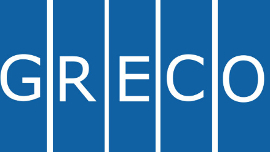In an evaluation report published today, the Council of Europe’s Group of States against Corruption (GRECO) called for Iceland to strengthen its systems to limit risks of corruption and improper conduct in government functions and law enforcement agencies.
The Icelandic society has become over the years increasingly aware and intolerant to the various forms and manifestations of corruption, especially after the financial crisis of 2008 which revealed how the excessive intermingling of private interests with the management of public affairs can generate structural vulnerabilities in a country of that size. Such issues remained at the centre of recent controversies which have contributed to the resignation of two successive governments, and other senior government officials. The government established in 2014 an anti-corruption steering group. It is striking that in the above context, no strategic action or dedicated overarching policy was elaborated by the group to promote integrity in State institutions.
In the report, GRECO calls for more robust and consistent rules of conduct, for instance in relation to gifts and other benefits and contacts with third parties seeking to influence government work, including lobbyists. Additional measures also need to be taken concerning revolving doors and parallel activities.
The action of the Prime Minister’s Office has so far focused on raising awareness and providing advice to ensure the effectiveness of the rules, but there is a clear need for a credible enforcement mechanism through a more dynamic approach. GRECO recommends that the authorities adopt an overarching strategy to develop integrity policies regarding senior executive functions, especially when it comes to the management of conflicts of interest. In particular, the system of periodic declaration of assets and interests needs to be strengthened, taking into account risks that assets be deliberately registered under someone else’s name (spouse, for instance). A positive result of Iceland’s increasing intolerance for misconduct involving government officials is that it sometimes leads to their resignation, contrary to the past. However, this should not remain the only response to serious misbehaviour.
The Police and Icelandic Coast Guard are among the most trusted public institutions. That said, GRECO stresses the need to increase the overall resources of the police (so that “four-eyes” working routines can be developed, for instance) and to review the current organisation of the police, which places all district commissioners under the direct authority of the Minister. Therefore, GRECO recommends that the authorities establish central structures to deal with internal controls and disciplinary inquiries. GRECO finds that the widespread system of renewable 5-year contracts generates additional risks of political pressure, especially on those with managerial responsibilities. Moreover, the filling of vacancies should as a rule, be based on open competitions and objective criteria. Iceland would need to introduce more robust and effective rules of conduct for law enforcement officers regarding gifts, conflicts of interest and political activities. Furthermore, GRECO recommends additional adjustments to help break any possible sign of a code of silence within law enforcement, including through the development of adequate protection for those who report suspicions of misbehaviour.
This evaluation concerns the prevention of corruption in respect of central government functions, and of law enforcement agencies under its new monitoring round.
The GRECO is a mutual evaluation mechanism composed of delegates from the 47 Council of Europe member States, Belarus and the United States of America.
Iceland is to report back on progress achieved in September 2019 at the latest.







